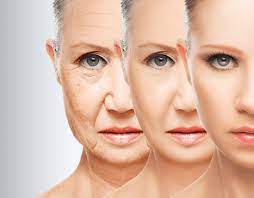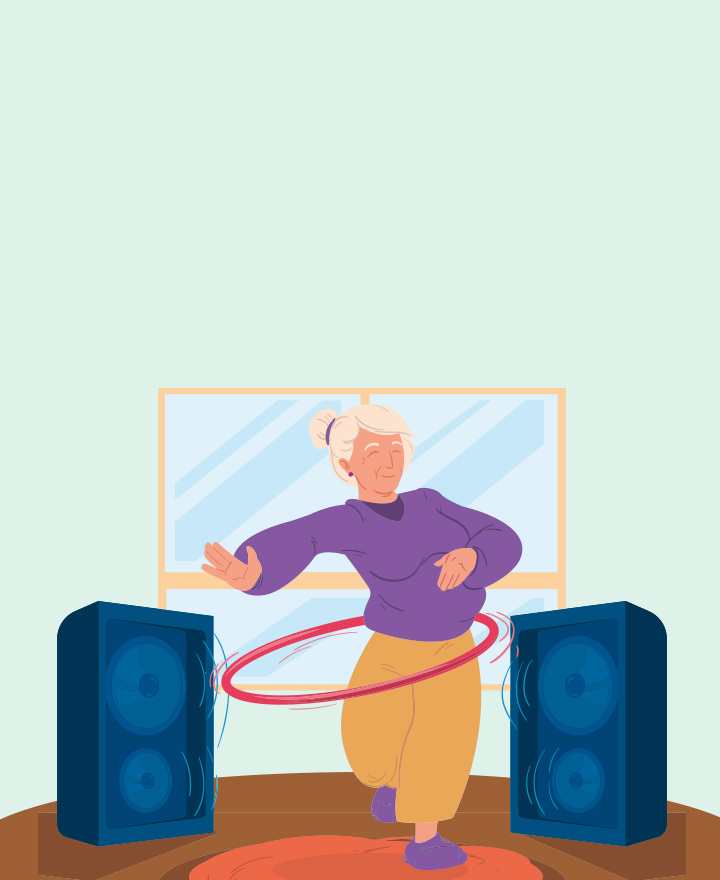According to a study that was published in the journal Cell Metabolism, biological age rises when under stress but falls back to its normal level once the stress has subsided.
According to experts, stress can speed up ageing by causing inflammation and damage to cells’ DNA.
A lower biological age is associated with a lower risk of immunological dysfunction, metabolic disorders, cardiovascular disease, and other age-related illnesses.
Your biological age can be slowed down by eating a nutritious diet, exercising frequently, managing your stress, and getting enough sleep. Your age is always represented by the number of candles on your birthday cake. But exactly how old are you?
The number of years you have lived is your chronological age. That one is simple. On the other hand, your biological age is what determines how old your body feels and behaves. It is frequently regarded as a sign of general health and is susceptible to lifestyle influences.
According to a recent study that was published in the journal Cell Metabolism, people’s biological ages rapidly rise in response to various types of stress. However, it also discovered that after a time of stress recuperation, this ageing can be stopped.
James White, a co-senior study author from Duke University School of Medicine, commented on the findings, stating that “previous reports have hinted at the possibility of short-term fluctuations in biological age, but the question of whether such changes are reversible has, until now, remained unexplored.”
Studies on biological age and stress revealed
In one experiment, the researchers underwent heterochronic parabiosis, a surgical technique in which they connected pairs of mice aged 3 and 20 months to share a common circulation.
The heterochronic parabiosis, a stressful circumstance, the researchers claimed, might cause the biological age of the younger mice to rise relatively quickly. The younger mice’s biological age was restored once the mice were divided, though.
The researchers then proposed the hypothesis that naturally occurring instances of physical or emotional tension would result in the same response, causing reversible changes in biological age.
They reported that following emergency surgery, the biological age increase returned to normal within a few days. Postpartum recovery followed the same pattern, though women recovered at different speeds. Immunosuppressive medications improved the biological clock recovery in COVID-19.
The researchers found that the following factors could affect biological age in both human and animal models:
- disease
- addiction recovery
- alterations in way of life
- ecological exposures
According to them, the study’s findings challenge the widespread belief that age advances only in one direction by showing that biological age may be fluid, changing, and flexible.
According to senior study author Vadim Gladyshev, Ph.D., a professor of medicine at Harvard Medical School and the director of redox medicine at Brigham and Women’s Hospital in Boston, “the findings imply that severe stress increases mortality, at least in part, by increasing biological age.”
This idea instantly implies that lowering biological age may reduce mortality and that the capacity to bounce back from stress may be a key factor in successful aging and longevity. Finally, biological age may be a helpful metric in evaluating physiological stress and its alleviation, the author continued.
How the body responds to stress?
According to Harvard Health, there is a fight-or-flight reaction when presented with a stressor, whether it is actual event perceived.
The body responds to instructions from the brain by getting ready to either fight or run from the threat.
Some physical responses include:
- Blood pressure and heart rate rise.
- Breathing accelerates
- Diffuse pain response
- pupils widen
- Increased awareness and observation
- You experience an increase in energy and power as adrenaline is pumped through your body.
To support sustained awareness in the face of a threat, the body produces cortisol.
“The flight or fight response is a psychological reaction when we are experiencing something dangerous or terrifying — mentally or physically,” explained Babita Spinelli, LP, a private practice psychotherapist and workplace mental health specialist. It is brought on by the hormones that are released when one is in danger or running from it.
“Although this behaviour is designed to survive a situation that feels ‘dangerous’ and may be helpful [short-term], a continuous, unaddressed flight or fight can create a negative physical reaction in the body,” Spinelli continued. “When in a state of flight or fight, everything is briefly stopped. Constantly being in flight or fight mode can lead to chronic stress, which can cause brain changes, anxiety, depression, sleep problems, high blood pressure, and other health problems.
Chronic stress is when a person’s response to stress cannot be slowed down and they continue to be hyperalert even after the stressor has subsided.
Long-term exposure to high cortisol levels can cause the following:
- increased appetite and fat tissue accumulation
- elevated blood pressure
- Heart and lungs under strain
- inhibiting the immune system
- Insomnia
- Anxiety
- tense muscles
- Headaches
Your body and health may be negatively impacted by all of this. The new study comes to the conclusion that it can also shorten your life.
How to delay biological ageing?
A younger biological age has several advantages. It is associated with a decreased chance of acquiring metabolic diseases, immunological dysfunction, cardiovascular disease, and other age-related problems.
You might be wondering how to determine your biological age since it is a significant predictor of general health and longevity.
Officially, you’ll require a biological age test that evaluates blood and urine samples, DNA methylation, and telomere length. You can also assess your biological health by taking a close look at your daily routine.
It’s probably safe to assume that your biological age is a few years younger than your chronological age if you maintain a healthy weight range, get enough sleep, manage stress well, and don’t lead a sedentary lifestyle.
You may be wondering if there is any way to slow down or even reverse biological ageing. You won’t be surprised to learn that leading a healthy lifestyle is important.
A nutritious diet, moderate alcohol use, and quitting smoking are all excellent strategies to raise your general health and, thus, reduce your biological age.
Because stress seems to have such a significant impact on biological age, it’s important to learn appropriate stress management techniques. Because we fast while we sleep, relaxation and sleep are crucial for the body’s ability to cope with stressors. This activates the body’s natural process of removing cellular waste, which slows down the aging process, according to Noble.
Any activity that makes you happy and excited—singing, dancing, walking—is a fantastic idea. Activating the vagus nerve, which is connected to all the main organs and tells them to rest, relax, and repair, is another advantage of singing, according to him.
Lessening the negative effects of stress
Incorporating a healthy mental and physical lifestyle, Spinelli remarked, “I have found that stress increases one’s biological age and can be positively impacted or restored.” “Paying attention to one’s mindset is also extremely powerful in reducing stress, which ultimately positively impacts the body.”
“Experiences like trauma and other significant life stresses have an impact on ageing. One’s mental and physical health suffer as a result of trauma, Spinelli continued. Regardless of age, the effects of illness, surgery, and other traumatic events have an impact on how people feel and navigate their lives. When faced with obstacles and problems, people in their twenties may feel older.
It does catch up physically and speeds up ageing if a person doesn’t make time to heal and move through those traumas. However, there are reversals in the biological ageing process through restoration, which I regard as paying and devoting active attention to recovery, both physical and mental. One can manage and control stress by incorporating good habits into their daily lives as opposed to letting stress rule their lives.
The Centres for Disease Control and Prevention (CDC) claim that even 10 minutes of exercise a day can help lower stress.
Results of the new study
The findings of this research are not shocking to Tunc Tiryaki. According to scientific data, it is generally known that stress has negative impacts on our physical and mental health and can quicken the aging process.
The discovery that biological age is recovered following stress, according to Tiryaki, is also intriguing but not altogether surprising.
He pointed out that numerous research indicate that stress-relieving practises including mindfulness meditation, regular exercise, and sound sleep help enhance a number of molecular indicators linked to ageing.
Tiryaki reasoned that since our bodies are capable of recovering from harm brought on by stress, it stands to reason that this process of recovery may also bring back our biological age.
Stress is not always harmful to your health.
Noble shares Tiryaki’s perspective, but asserts that the most recent study’s findings do not provide the “full picture.”
He pointed out that some types of stress, such as those you encounter while in a hot sauna, an ice bath, or while engaging in vigorous exercise, might really be beneficial for you.
“Stress can, of course, kill organisms that are not resistant to it. However, how organisms handle stress is the secret to good health. Or, to put it another way, how quickly they can bounce back and return to being “on top,” he said.
Noble pointed out that the fact that humans adapt and learn is one of the reasons biological age is restored after recovery.
He noted that “athletes are well aware of this phenomenon.” “High-performance gymnasts and runners, under the direction of their coaches, push their tolerance of stress to increase levels, which leads to improvements in muscle strength and function.”
Although this type of stress may result in physical improvements, cumulative stress, a type of chronic, emotional stress, may cause the most harm.
An rise in cumulative stress was linked to faster ageing, according to a study published in Translational Psychiatry in 2021, and emotional management decreased it.
REFERENCES:
For Stress medications that have been suggested by doctors worldwide are available here https://mygenericpharmacy.com/index.php?cPath=77_478



